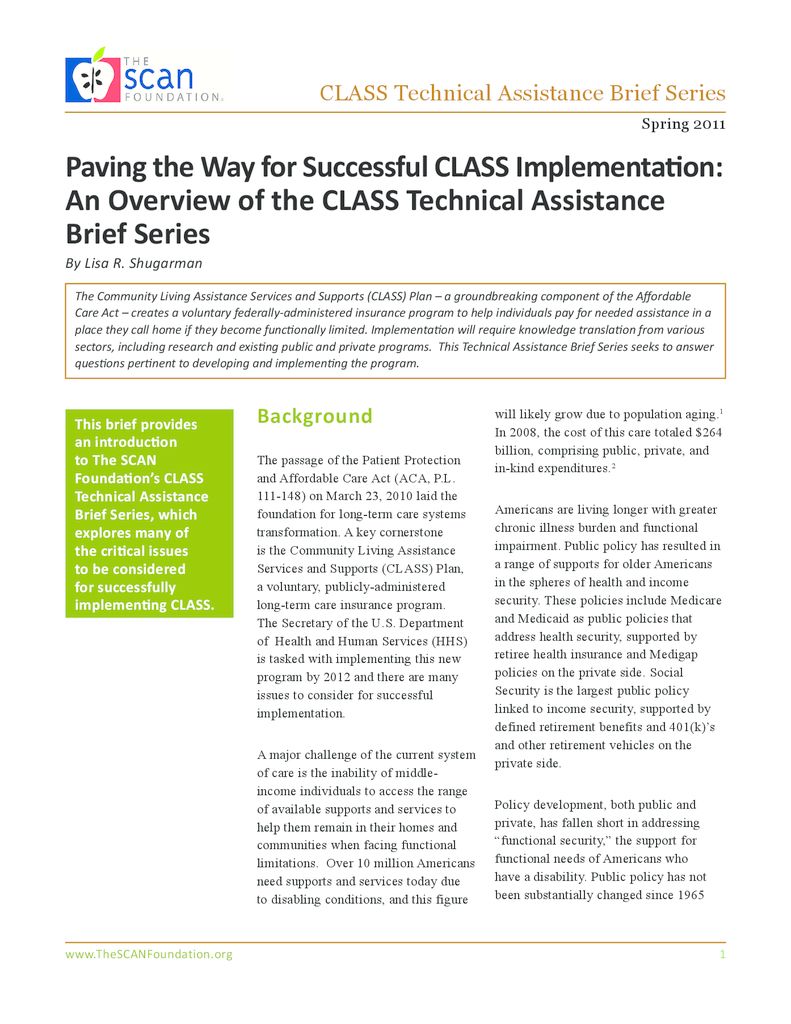Paving the Way for Successful CLASS Implementation: An Overview of the CLASS Technical Assistance Brief Series
summary
This policy brief provides an introduction to The SCAN Foundation’s CLASS Technical Assistance Brief Series, which explores many of the critical issues to be considered for successfully implementing CLASS.
Date Updated: 04/06/2011Background
The passage of the Patient Protection and Affordable Care Act (ACA, P.L. 111-148) on March 23, 2010 laid the foundation for long-term care systems transformation. A key cornerstone is the Community Living Assistance Services and Supports (CLASS) Plan, a voluntary, publicly-administered long-term care insurance program. The Secretary of the U.S. Department of Health and Human Services (HHS) is tasked with implementing this new program by 2012, and there are many issues to consider for successful implementation…
Download the publication for all visuals and complete references.
Continue Reading
This policy brief provides information about how long-term care insurers implement benefit eligibility triggers in the private insurance market. The way in which companies have operationalized benefit eligibility triggers can inform the development of regulations for the CLASS Plan.
This policy brief provides information on the benefit eligibility assessment process in the private long-term care insurance industry. It focuses on how long-term care insurers use the information in the adjudication process, who is involved in the process, and how activities of daily living and cognition are assessed.
This policy brief identifies the elements states use for an assessment of a person’s physical and cognitive limitations and need, and compares these elements to the requirements of the CLASS Plan.


